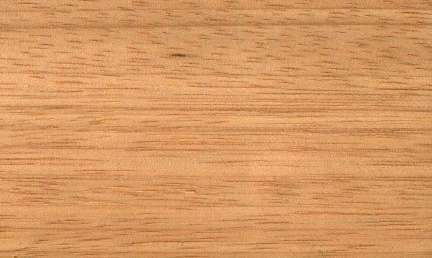
Andoung (Monopetalanthus heitzii)
Family: Caesalpiniaceae
Common names: Adoung, Adoung de heitz, Andjung, Andoung, Andoung de heitz, Ekop, Ekop-mayo, N'Douma, Zoele
Distributed in: Gabon (Africa)
Distribution overview: The growth range of the species is confined to the northern areas in Gabon. It grows in moist soils along rivers and swampy or occasionally flooded areas.
Common uses: Boat building, Boxes and crates, Building construction, Building materials, Cabinetmaking, Canoes, Construction, Core Stock, Decorative plywood, Decorative veneer, Domestic flooring, Factory flooring, Figured veneer, Flooring, Furniture , Furniture components, Furniture squares or stock, Furniture, Interior trim, Joinery, Ladders , Lifeboats, Light construction, Matchboxes, Matches, Millwork, Moldings, Novelties, Office furniture, Packing cases, Parquet flooring, Plain veneer, Plywood, Pulp/Paper products, Pulpwood, Shipbuilding, Structural plywood, Sub-flooring, Trimming, Veneer, Wainscotting
Environment profile: Status has not been officially assessed
Tree size: Tree height is 30-40 m
Colors: the heart isWhite to cream, Yellowand the sapwoodWhitish to greyish white , Yellow.The grain isRays figure, the textureUniformand the lusterMedium
Natural durability: Susceptible to insect attack, Very durable
Odor: No specific smell or taste
LightInduced Color Change: Darker
Kiln Schedules: T6 - D2 (4/4) US
Drying Defects: Slight cupping, Slight surface checking
Ease of Drying: Fairly Easy
Tree Identification: Bole/stem form is straight
Comments: General finishing qualities are rated as good Quick removal from forest avoids splitting, and losses to insect or fungal attack
Blunting Effect: Moderate
Boring: Fairly easy to very easy
Carving: Fairly Easy to Very Easy
Cutting Resistance: Easy to saw
Gluing: May need filler
Mortising: Generally good mortising properties
Moulding: Good finishing
Movement in Service: Good finishing
Nailing: Tends to split during nailing, Very Good to Excellent
Planing: Fairly Easy to Very Easy
Resistance to Impregnation: Sapwood is permeable
Response to hand tools: Responds Readily
Routing recessing: Generally good
Sanding: Fair to Good Results
Veneering qualities: Veneers easily, Veneers moderately easy
Steam bending: Poor
Screwing: Satisfactory screwing properties, Very Good to Excellent Results; Turning: Moderate dulling of cutting edges
Painting: Very Good to Excellent; Polishing: Very Good to Excellent; Staining: Finish is generally good; Varnishing: Very Good to Excellent;
- Numerical data Metric
- Numerical data English
- Strength properties
- References
 |
 |
 |
 |
| Item |
Green |
Dry |
Metric |
| Specific Gravity |
0,35 |
|
|
| Density |
|
544 |
kg/m3 |
| Bending Strength |
669 |
936 |
kg/cm2 |
| Crushing Strength |
233 |
442 |
kg/cm2 |
| Hardness |
|
|
kg |
| Impact Strength |
|
|
cm |
| Shearing Strength |
|
117 |
kg/cm2 |
| Stiffness |
71 |
91 |
1000 kg/cm2 |
| Tangential Shrinkage |
6 |
|
% |
| Radial Shrinkage |
3 |
|
% |
| Weight |
657 |
528 |
kg/m3 |
| Maximum Load |
|
|
cm-kg/cm3 |
| Toughness |
|
248 |
cm-kg |
| Static Bending |
|
|
kg/cm2 |
|
 |  |  |  | | Item | Green | Dry | English | | Bending Strength | 9524 | 13325 | psi | | Density | | 34 | lbs/ft3 | | Maximum Crushing Strength | 3324 | 6292 | psi | | Shearing Strength | | 1666 | psi | | Stiffness | 1017 | 1306 | 1000 psi | | Toughness | | 216 | inch-lbs | | Specific Gravity | 0.35 | | | | Weight | 41 | 33 | lbs/ft3 | | Radial Shrinkage | 3 | | % | | Tangential Shrinkage | 6 | | % | | Volumetric Shrinkage | 11 | | % | |
Bending strength (MOR) = medium
Shrinkage, Tangential = moderate
Shrinkage, Radial = small
Max. crushing strength = medium
Density (dry weight) = 31-37 lbs/cu. ft.
Bending strength (MOR) = high
Shrinkage, Tangential = small
Shrinkage, Radial = very small
Modulus of Elasticity (stiffness) = very low
Max. crushing strength = low
Max. crushing strength = high
Density = high
Density (dry weight) = 38-45 lbs/cu. ft.
Compression strength (parallel to grain) = high
Bending strength (MOR) = low
Bolza, E., Keating, W.G.,1972,African Timbers - the Properties, Uses and Characteristics of 700 Species,C.S.I.R.O. Div. of Building ResearchChudnoff, M.,1984,Tropical Timbers of the World,U.S.A. Department of Agriculture, Forest Service, Forest Products,Laboratory, Madison.Erfurth, T., Rusche, H.,1976,The Marketing of Tropical Wood A. Wood Species from African Moist Forests,F.A.O. Forestry DepartmentI.U.F.R.O.,1973,Veneer Species of the World,Assembled at F.P.L. Madison on behalf of I.U.F.R.O. Working Party on,Slicing and Veneer CuttingITTO.1986.Tropical Timber Atlas, Volume 1 - Africa.International Tropical Timber Organization (ITTO) and Centre Technique Forestier Tropical (CTFT, 45bis, Avenue de la Belle Gabrielle, Nogent-sur-Marne Cedex, France.ITTO. New Marketable Species Technical Notes. Prepared by Centre Technique Forestier Tropical (CTFT, Division of CIRAD, 45 bis, Avenue de la Belle Gabrielle, 94736 Nogent-sur-marne Cedex, FranceTakahashi, A.,1978,Compilation of Data on the Mechanical Properties of Foreign Woods (Part,III) Africa,Shimane University, Japan, Research Report on Foreign Wood No. 7WCMC.1992.Conservation Status Listing - Trees and Timbers of the World.World Conservation Monitoring Center - Plants Programme, Cambridge, CB3 ODL, United Kingdom.
|








